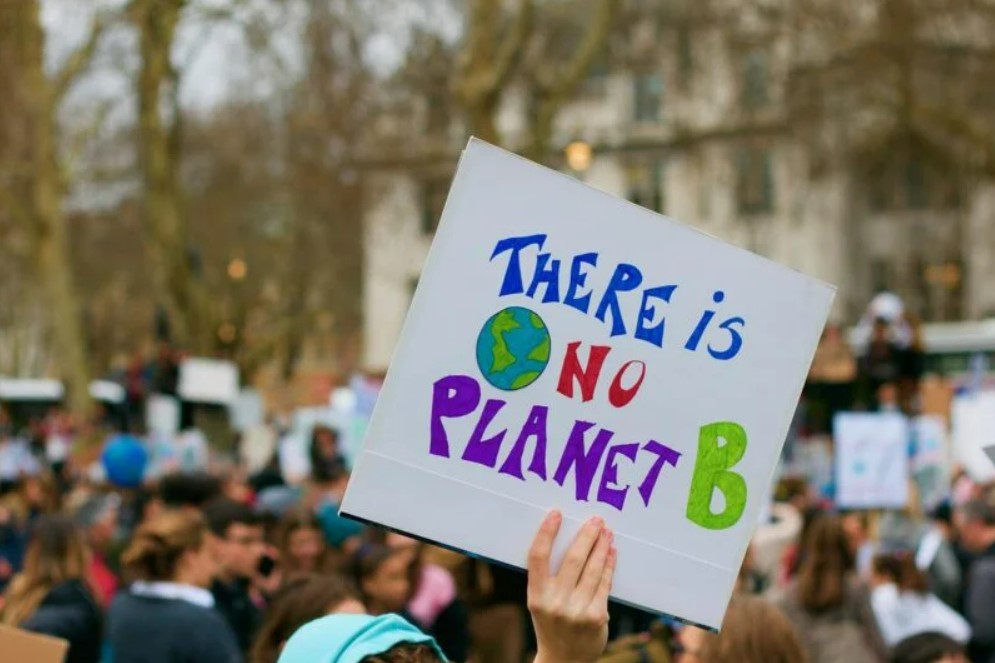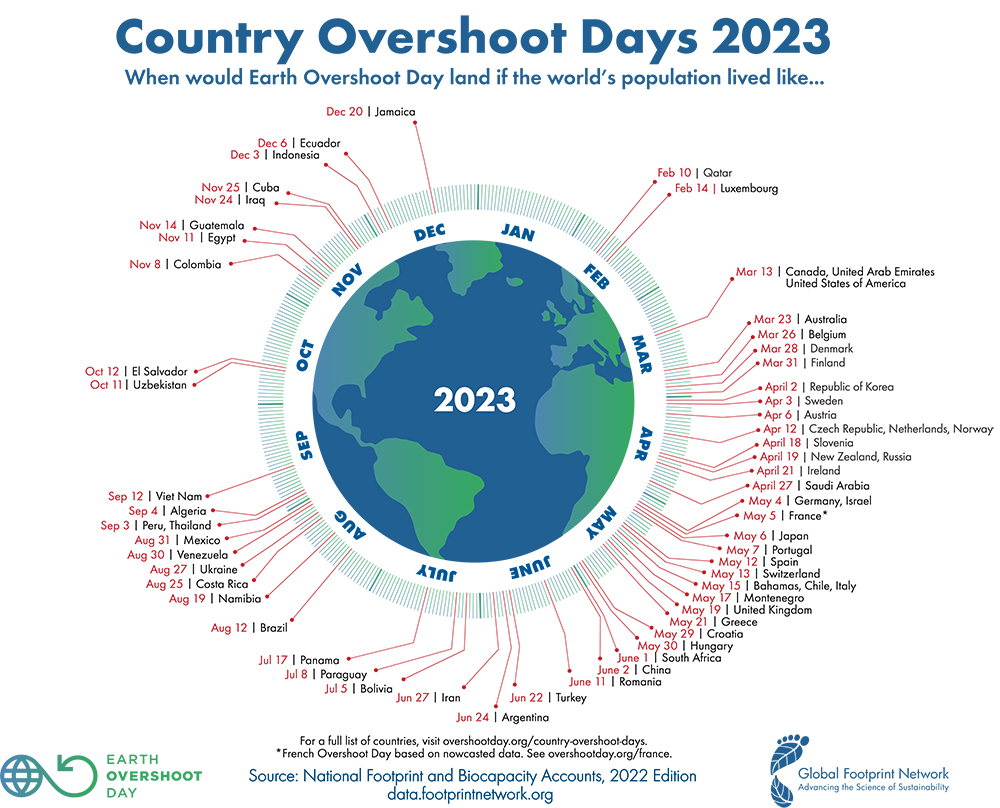Belgium is experiencing its 'Earth Overshoot Day' on 26 March (today), meaning that if the whole world had as big an ecological footprint as the Belgians, the resources that the earth can provide in one year would already be depleted by now.
While Belgium's Overshoot Day falls on the same date as last year, it finishes among the worst countries in the world and scores worse than neighbouring countries such as the Netherlands, France and Germany.
"Belgium is very built-up, there is a lot of concrete," Koen Stuyck of WWF Belgium told VRT, adding that the calculation is made based on much more than biocapacity alone. "We also live in on average old and large houses."
More than four planets needed
As a result, more energy is needed to heat them, and more greenhouse gases such as CO₂ are emitted. In turn, this requires more nature to reabsorb them. Emissions of the greenhouse gas CO₂ accounted for the lion's share of Belgium's footprint last year.
Before the first three months of the year are up, Belgians have already used up their entire budget for a whole year, meaning more than four planets would be needed if the whole world had the same ecological footprints as Belgium.
Additionally, Belgian residents still often take the car and their consumption patterns also lead to a worse score. "Our net imports are very large," said Stuyck. A mobile phone made in China or avocados grown in Mexico are included in the Belgian score because Belgium imports them.
In recent years, the Belgian overshoot score came earlier and earlier. In 2019, the date was still on 6 April, only to move forward a bit each year. Belgium does significantly worse than neighbouring countries the Netherlands, France and Germany and globally, only a handful of countries are doing worse, including Qatar, Canada and the United States.
The Netherlands is doing better than Belgium by more than two weeks (12 April). "The Netherlands is more efficient than Belgium in terms of transport and mobility. They rely less on private transport than we do," said Stuyck.
This is partly due to our poor spatial planning: in Belgium, residential areas are very fragmented. In the Netherlands, this is better organised. "They need the car less for their trips and cover fewer kilometres. Their houses are also smaller and slightly less old, so they consume less energy."
Related News
- Brussels to be plunged into darkness on Saturday for Earth Hour
- The world is ill prepared for disasters, scientists warn
Germany's overshoot day doesn't fall until 4 May, partly because the country is much larger and there has more biocapacity per person. Germans also have a smaller ecological footprint per capita than Belgium – in 2018, it was even a third lower.
"That small footprint is partly due to the energy transition they went through, with much more wind and solar energy," Stuyck said. The caveat, however, is that Germany is still tapping new sources of fossil fuels such as coal fields. "Additionally, the figures only include CO₂ emissions, not methane."
As a large country, France does one day better than Germany as its overshoot day takes place on 5 May. The country has the advantage of even greater biocapacity: it has much more space than Belgium to grow its own fruit and vegetables, or produce wood, for example. The country also has more capacity to absorb CO₂ via nature, and suffers less from hardening.


